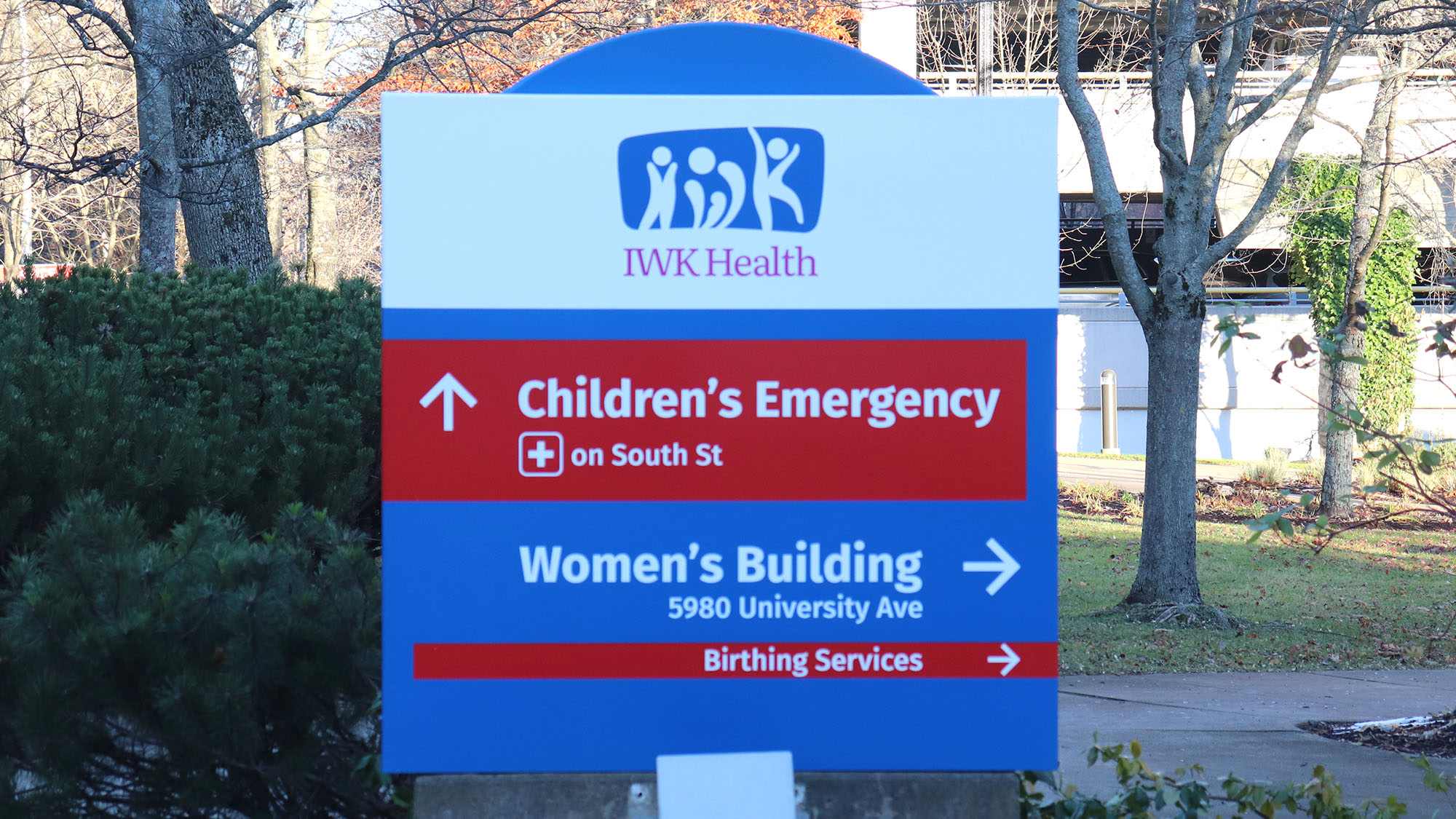Advocate says ending birth alerts in Nova Scotia ‘absolute bare minimum’
Hospitals will no longer alert child-care services of ‘significant risk’ mothers

caption
A sign at the IWK Health Centre in Halifax points to the direction of birthing services at the hospital.Martha Paynter says a move to end birth alerts in Nova Scotia was “overdue.”
Paynter is the founder of Wellness Within, a non-profit organization that advocates for reproductive justice in Nova Scotia.
She was reacting to the decision Tuesday by the province to end the practice of birth alerts.
Birth alerts happen when hospitals report to child-care agencies that a mother poses a “significant risk” to her child according to the provincial government. The alerts have long been attacked as racially biased.
“They are a product of colonialism and racism,” Paynter said.
“This is an absolute bare minimum requirement to begin to move towards reconciliation.”
The National Inquiry into Missing and Murdered Indigenous Women and Girls called birth alerts “A gross violation of the rights of the child, the mother, and the community.” Their final report in 2019 also said that birth alerts disproportionately affect Indigenous women and their children.
The provincial government acknowledged this in its announcement on Tuesday.
“I recognize the troubling concerns with birth alerts and how they have a disproportionate effect on African Nova Scotian and Indigenous families and other marginalized women,” said Community Services Minister Karla MacFarlane in a release.
The Truth and Reconciliation Commission of Canada called upon the government to decrease the number of Indigenous children in the care system.
The Nova Scotia government said a new position will be created to address “prevention” and “early intervention” called the families connection co-ordinator.
Paynter, who called birth alerts “incredibly traumatizing for the mother and the child,” criticized this decision.
“We know from historical numbers that there’s between 80 and 100 birth alerts per year. So we’re looking at a predicted minimum of 100 clients a year. And that’s just too many for a single person to deal with properly,” Paynter said.
MacFarlane declined an interview, but department spokesperson Lisa Jarrett said in an email that the government will increase investment in intervention and prevention programs to help families.
“The goal is to connect expectant families to community, where they can receive a range of supports that can extend well after the birth of the child,” Jarrett said.
Paynter said that is not enough. She said that when something is set up for failure from the start, “we really aren’t making responsible and sincere effort to create a meaningful alternative.”

